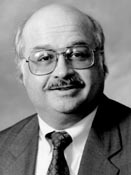At Issue
Encouraging Nonprofit Organizations in Wisconsin
A rewrite of Chapter 181 encourages the formation and work of
nonprofits and their volunteers by removing many of the administrative
hurdles they currently must overcome.
Editor's Note: To view Wisconsin
statutory materials referenced in this article you must have and/or
install Adobe
Acrobat Reader 3.0 on your computer.
By Thomas Frenn
1997 saw a resurgence in volunteerism. From the Summit on
Volunteerism held in Philadelphia to passage of the federal Volunteer Protection
Act, the United States is renewing its commitment to nonprofit
organizations and their volunteers. Wisconsin is following suit in
1998.
Wisconsin recently saw the introduction of legislation that
clarifies, conforms, protects, and provides flexibility under Wisconsin
nonstock law (Wis. Stat.
chapter 181) to nonprofit organizations and other entities regulated
by the statute. The legislation was introduced in each legislative house
as Senate
Bill 423 and Assembly
Bill 765.
Even though local and state nonprofit organizations provide many
essential services, over the years Wisconsin law has created a confusing
web of administrative hurdles for these organizations to overcome.
Following are some of the provisions under this legislation that will
help nonprofits in their daily governance.
Flexibility
Nonprofit organizations are not all alike; they can range from trade
to religious organizations. The current approach to nonprofit law
imposes some unnecessary barriers to organizations' effectiveness. The
Chapter 181 rewrite will give nonprofits the flexibility to tailor their
organization's structure to fit their needs.
Nonprofits also may authorize governing action by written ballot if
it is permitted in either the articles of incorporation or the bylaws.
The rewrite also provides for "emergency bylaw" procedures that can be
implemented when a catastrophic event occurs preventing a quorum from
attending. No such provision exists under current law.
Distributions in certain instances are allowed under the rewrite. The
distributions must specifically be permitted by the articles of
incorporation, be consistent with the organization's purpose, and the
organization's assets must continue to exceed its liabilities after the
distributions are made.
The legislation also permits derivative actions in the right of the
corporation under certain circumstances. Specific procedures and
guidelines have been established to govern the derivative actions,
including a requirement that the court dismiss the derivative proceeding
if a majority of independent directors or a court-appointed panel
determine that the proceeding is not in the corporation's best
interest.
Conformity
Nonprofit law was intended to mirror Wisconsin's Business Corporation
Statute (Chapter
180). The latter has seen significant revisions since the early
1990s. This legislation brings nonprofit law into conformity with
business corporation laws (where appropriate).
Foreign nonprofit organizations will be required to register in
Wisconsin (that is, obtain a certificate of authority). Wisconsin is one
of only a few states that do not require foreign nonprofits to register.
Requiring foreign nonprofits to register provides for uniformity in how
nonprofits are treated, regardless of their principal office
location.
Current law also does not provide a procedure for foreign nonstock
corporations to "domesticate," although they can merge and consolidate
with a domestic nonstock corporation. The legislation establishes
specific requirements and procedures for foreign nonprofit organizations
to domesticate in Wisconsin.
Efficiency
The legislation streamlines administrative procedures and guidelines
by creating a single repository for recording and filing documents,
eliminating confusion on where to find any filings relating to a
nonprofit organization. Procedural changes to such issues as mergers,
consolidations, and judicial dissolution also are provided.
|

Thomas Frenn chairs the
Nonprofit Organizations Committee of the State Bar's Business Law
Section. He is a shareholder in Petri & Stocking S.C., Milwaukee. He
practices primarily in general business and nonprofit law.
|
Liability
Current standards for liability for officers and directors of
nonprofits are maintained, and protection for licensed professional
volunteers is expanded. Individuals who volunteer in their certified or
licensed capacity currently have little protection. This legislation
provides limited liability to those individuals. These changes reflect,
in part, the enactment at the federal level of the Volunteer Protection
Act of 1997.
Summary
The State Bar's Business Law Section spearheaded the work on the
comprehensive rewrite to Chapter 181 of the Wisconsin Statutes. In
cooperation with attorneys, legislators, state agencies, and other
organizations, the committee, over several years, completed a
line-by-line review to produce the final bill. The committee,
representing numerous types and sizes of nonprofits, based its work on a
model act of the ABA Business Law Section.
The committee thanks Sen. Brian Burke, Sen. Joanne Huelsman, Rep.
Scott Walker, Sen. Margaret Farrow, and all the cosponsors of this
legislation for their involvement. The committee especially thanks the
legislative bill drafter, attorney Scott Hubli of the Legislative
Reference Bureau, for his countless hours of work on this project.
Wisconsin Lawyer
